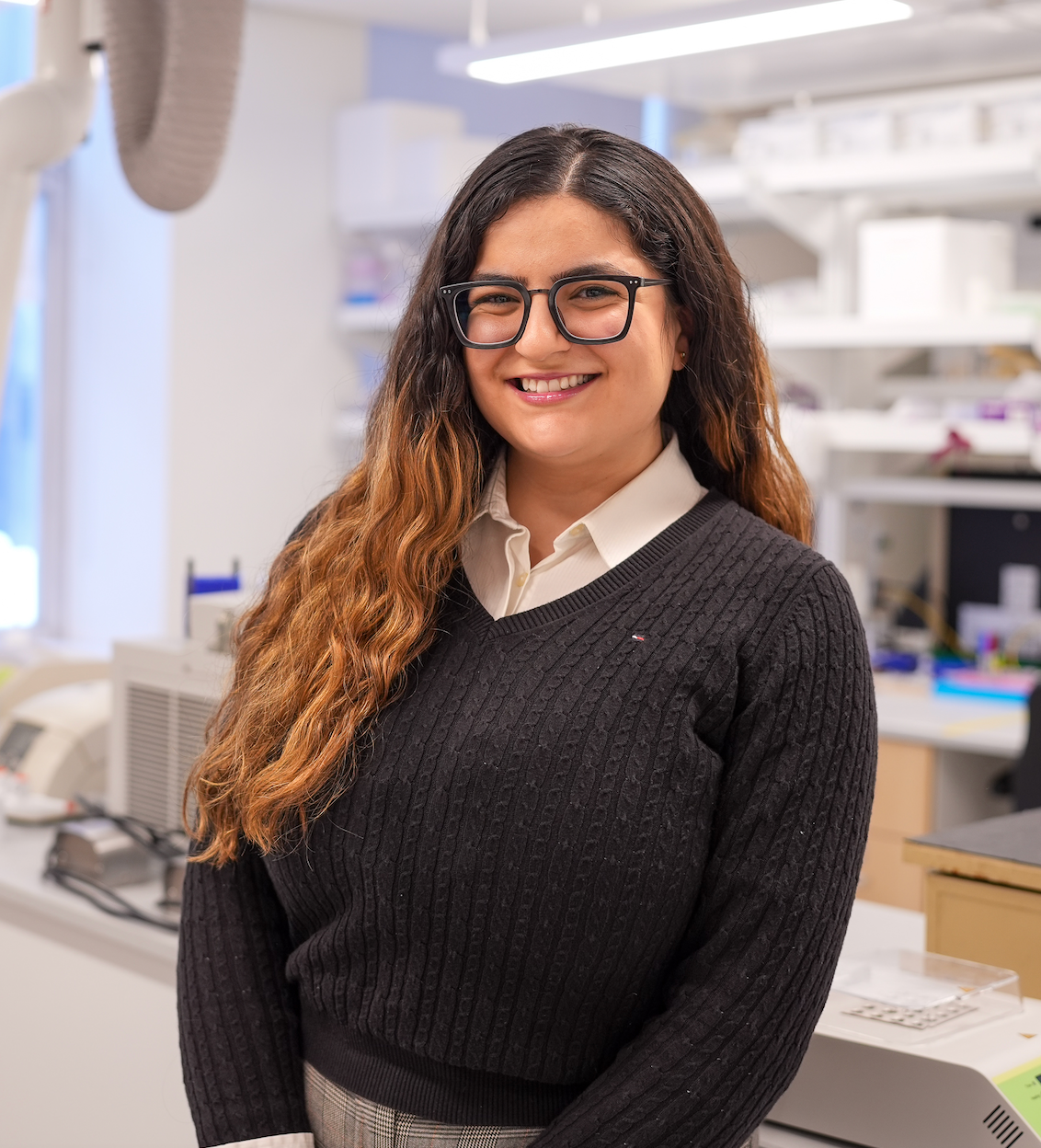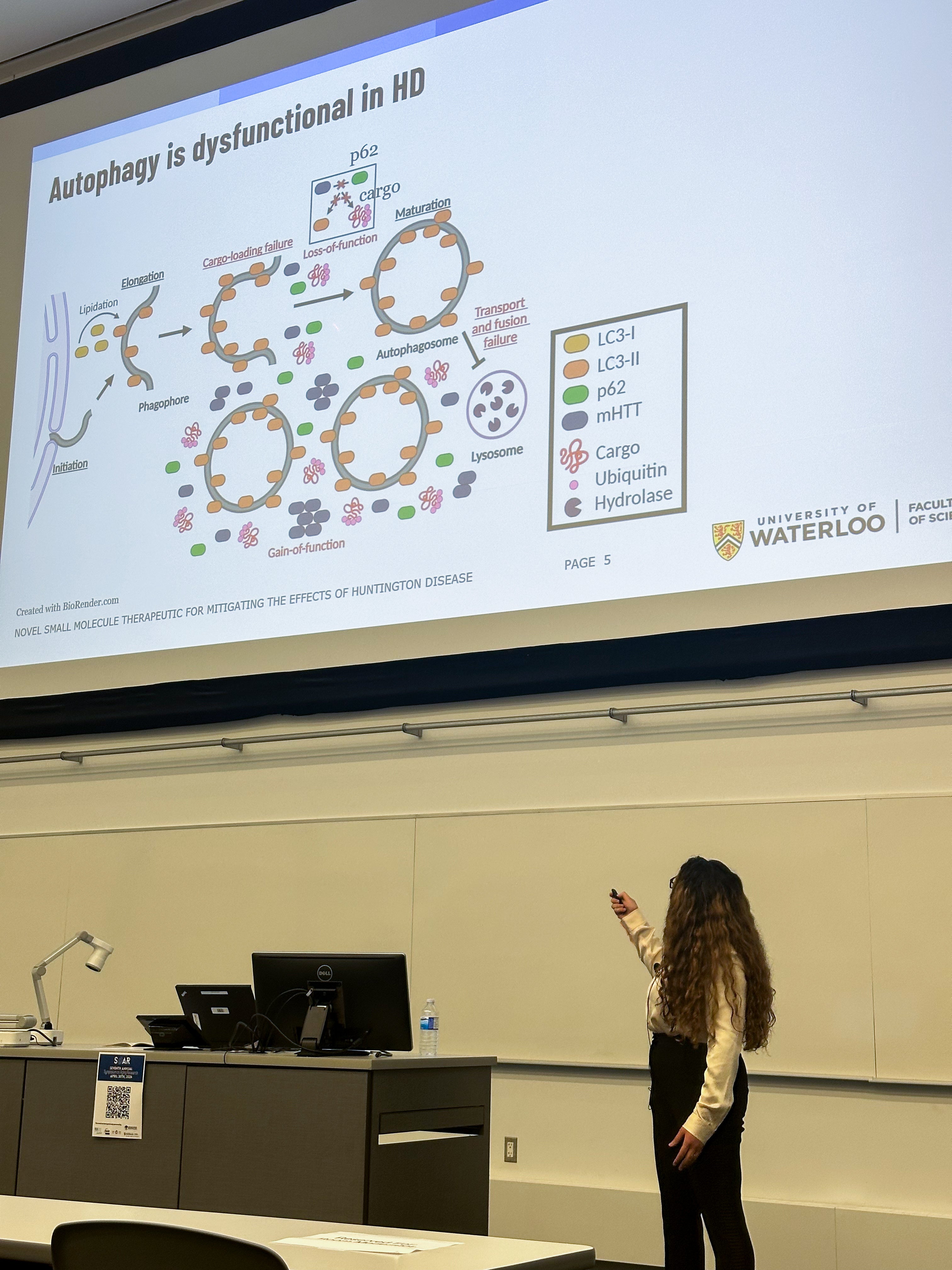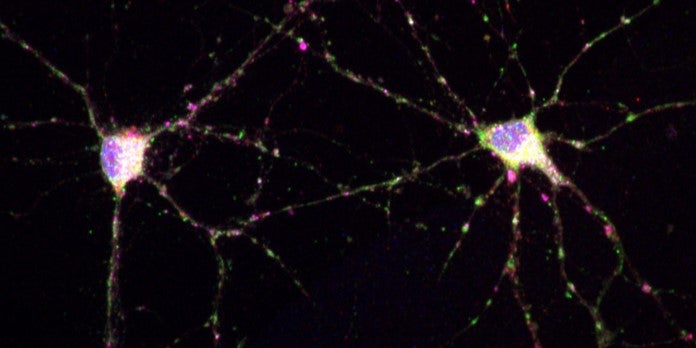
Emerging Researchers - Yasmeen Alshehabi
Behind the Breakthroughs: Emerging Research in Neurodegeneration

By Elizabeth Drolle
Operations and Relations Manager, Network for Aging Research
For Yasmeen Alshehabi, a passion for neuroscience and a drive to make a difference in human health have defined her research journey. A recent Master’s graduate from the Department of Biology at the University of Waterloo, Yasmeen has been investigating a potential drug therapy for Huntington disease in Dr. Dale Martin’s lab - research that could one day contribute to novel treatments for neurodegenerative disorders.
Her work focuses on enhancing a critical cellular process known as autophagy—the body’s natural system for removing damaged proteins and organelles to maintain cellular health. This process is especially important in the brain, where the buildup of toxic protein aggregates can lead to neurodegenerative diseases. In Huntington disease - a hereditary disorder that causes the progressive breakdown of nerve cells in the brain - this cleanup system is impaired, particularly during a step called cargo loading. Yasmeen’s research centers on a protein called p62, which helps guide cellular waste into the autophagic pathway. “We found that the palmitoylation of p62 is decreased in Huntington disease,” she explains. This protein modification is essential for p62 to function properly. By restoring it, we hope to rescue the autophagic process and help clear the harmful protein aggregates that accumulate in affected brain cells.”
Her research involves primarily in vitro cell culture work, along with some mouse model characterization to prepare for preclinical trials. She’s also investigating potential mechanistic overlaps between Huntington disease and ALS, two distinct but similarly devastating neurodegenerative diseases. Yasmeen will continue working in Dr. Martin’s lab as a research scientist for the next few months, supporting the early stages of preclinical testing.

Yasmeen’s path into neurodegenerative research began during her undergraduate studies in Honours Biomedical Sciences at the University of Waterloo, where she also pursued minors in French and Psychology. Drawn to the intersection of neuroscience and human health, she chose to extend her studies by an additional year to undertake a Senior Honours Project (locally known as BIOL 499, a research-intensive opportunity reserved for senior students) in Dr. Martin’s lab - an experience that deepened her passion for research. During that extra year, she also added a third minor in Medical Physiology, rounding out an already rigorous and multidisciplinary academic journey. “I loved my 499 project,” she says. “It really enriched my understanding of neuroscience and confirmed how much I value research as part of a broader approach to health care.”
Although she didn’t initially seek out aging-related research, Yasmeen was drawn to studying neurodegenerative diseases through a desire to understand the mechanisms behind these complex conditions. “I didn’t find this research area—it found me,” she says. “And the community around it is so welcoming and supportive.”
Beyond the lab, Yasmeen has made a meaningful and lasting impact on the University of Waterloo community. During her Master’s, she founded the University of Waterloo Neurodegenerative Research Association (UW NDRA), became an active member of the Biology Graduate Student Association (BGSA), and served as a Biology representative in the Graduate Student Association (GSA). With the support of a CIHR grant, she was able to step away from part-time work and dedicate herself fully to graduate studies - an opportunity she says allowed her to grow both personally and academically. “I really came out of my shell during my Master’s,” she reflects. “I’m really proud of how much more involved I’ve become in the department and the broader UW community.” One of her most meaningful accomplishments was leading the organization of the University of Waterloo’s first-ever Symposium on Neuroscience Research - an initiative that brought together students and researchers from across disciplines to share knowledge and spark collaboration. This endeavour will return for its second year in a row late this fall.
Looking ahead, Yasmeen plans to pursue a career in healthcare, carrying with her a rich understanding of the science behind the diseases she hopes to help treat. “It’s important to stay hopeful about the future,” she says. “The research we’re doing now can have real impact - and that’s what keeps me going.”

Yasmeen holds a BSc in Honours Biomedical Sciences with minors in French, Psychology, and Medical Physiology from the University of Waterloo, where she also completed her MSc in Biology under the supervision of Dr. Dale Martin. During her graduate studies, she investigated potential therapeutic targets for Huntington disease, with a focus on autophagy and protein clearance. She is currently working as a research scientist in Dr. Martin’s lab, supporting early-stage preclinical research. For inquiries about her research, she can be reached at yalshehabi@uwaterloo.ca
If you are interested in nominating a student for NAR's Emerging Researchers series, please contact us at nar@uwaterloo.ca